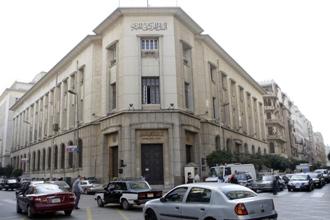The Central Bank of Egypt (CBE) anticipates persistent inflationary pressures in the Egyptian market due to financial control measures and supply-side factors. It also noted that the domestic liquidity growth rate, which exceeded its historical average, added to the inflationary pressures.
On Thursday evening, the Monetary Policy Committee (MPC) decided to increase CBE’s basic interest rates by 2% to 21.25% for deposits, 22.25% for lending, and 21.75% for the credit and discount rates and the main operation of CBE.
The MPC stated that the 200 basis point hike aimed to lower inflation expectations and tighten monetary conditions, to keep inflation rates on a downward trajectory. It emphasized that it would continue to assess the risk balance, to achieve price stability in the medium term. It also said that it would not hesitate to use all available tools to restrict monetary conditions.
The MPC confirmed that the path of the basic interest rates depended on the expected inflation rates. It also mentioned that the data received since its meeting in December 2023, including the inflation data, were higher than expected.
The MPC said that inflationary pressures would continue to affect consumption and pricing patterns and that geopolitical tensions and maritime navigation disruption could cause high uncertainty about global and local inflation rates, which implied increasing risks for inflation expectations.
This was despite the MPC’s indication that the annual rates of headline and core inflation would keep declining to 33.7% and 34.2%, respectively, in December 2023, driven by the positive impact of the base period. Current updates showed that inflationary pressures persisted and rose above their normal pattern, which was reflected in the inflation of both food and non-food items.
The MPC added that at the global level, economic activity slowed down as a result of the monetary tightening policies adopted by the major central banks on demand. Global inflationary pressures also decreased recently as a result of the monetary tightening policies that were followed in many advanced and emerging economies, and consequently, the inflation expectations for those economies declined.
Locally, the real gross domestic product grew by 2.7% during the third quarter of 2023 compared to 2.9% during the previous quarter. This growth was supported by the positive contributions of the trade, agriculture, and communications sectors.
However, preliminary indicators for the fourth quarter of 2023 suggested a slowdown in economic activity, and therefore, it was expected that the GDP growth rate would decelerate during the fiscal year 2023/2024 compared to the previous fiscal year and that it would gradually recover later.
The MPC explained that this was consistent with the actual developments in the data as well as the negative impacts resulting from the regional instability and the disruption of navigation in the Red Sea on the services sector.
Regarding the labor market, the MPC said that the unemployment rate remained at 7.1% during the third quarter of 2023.




